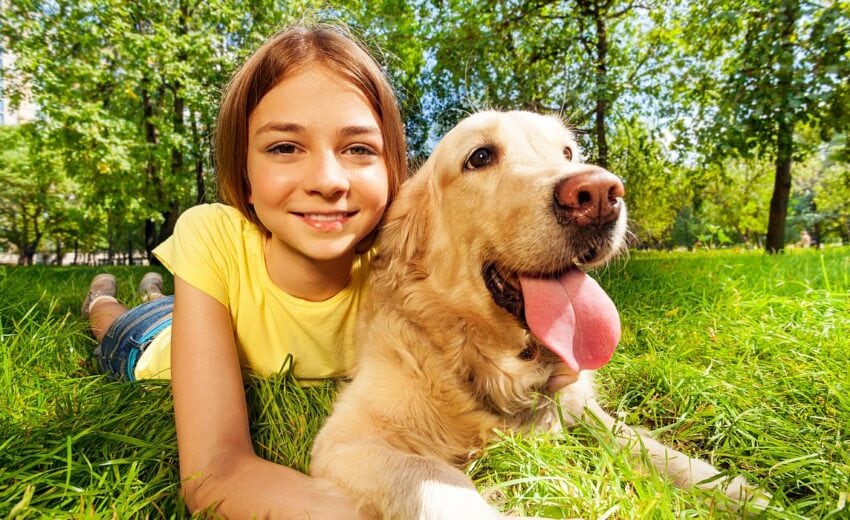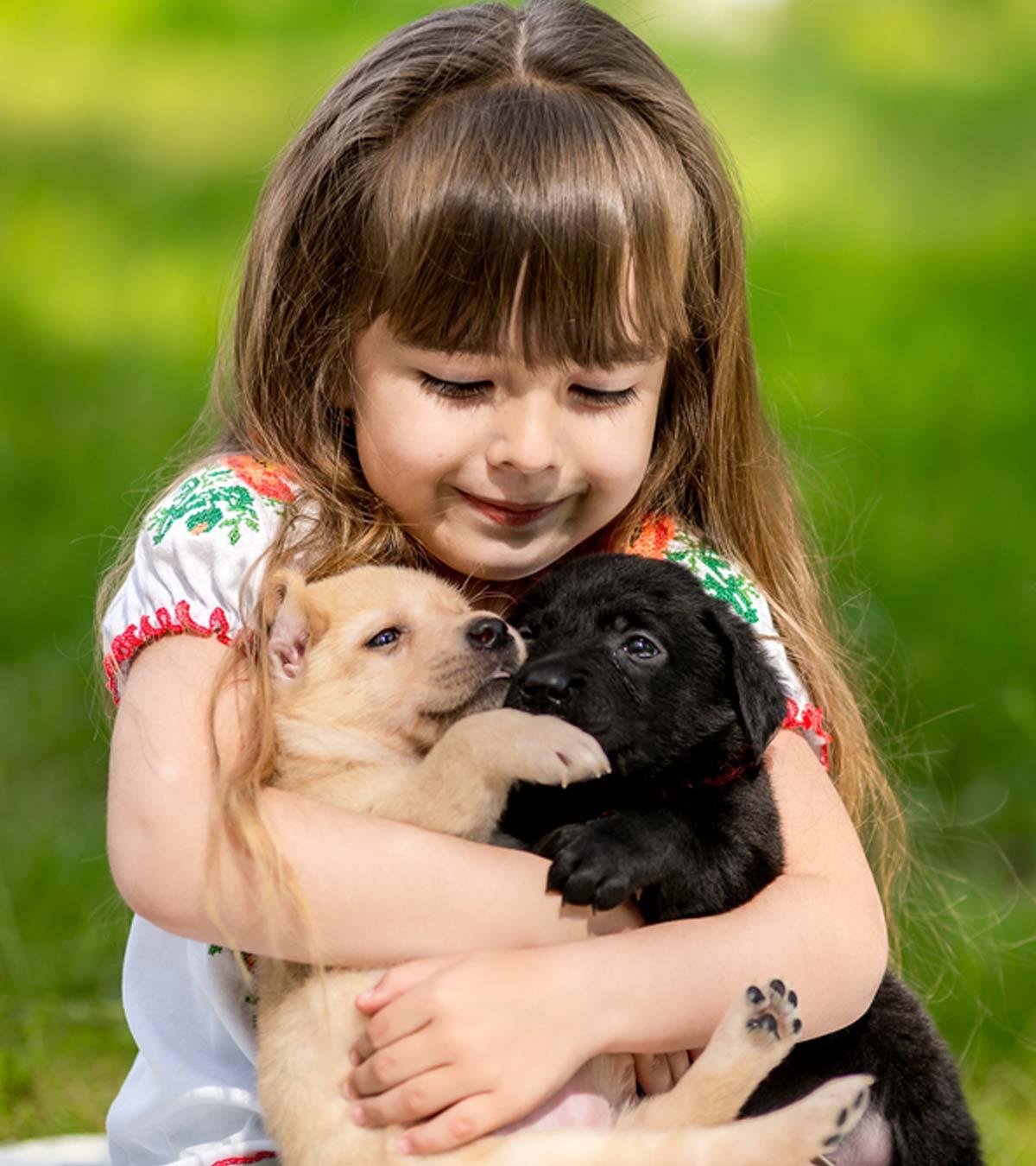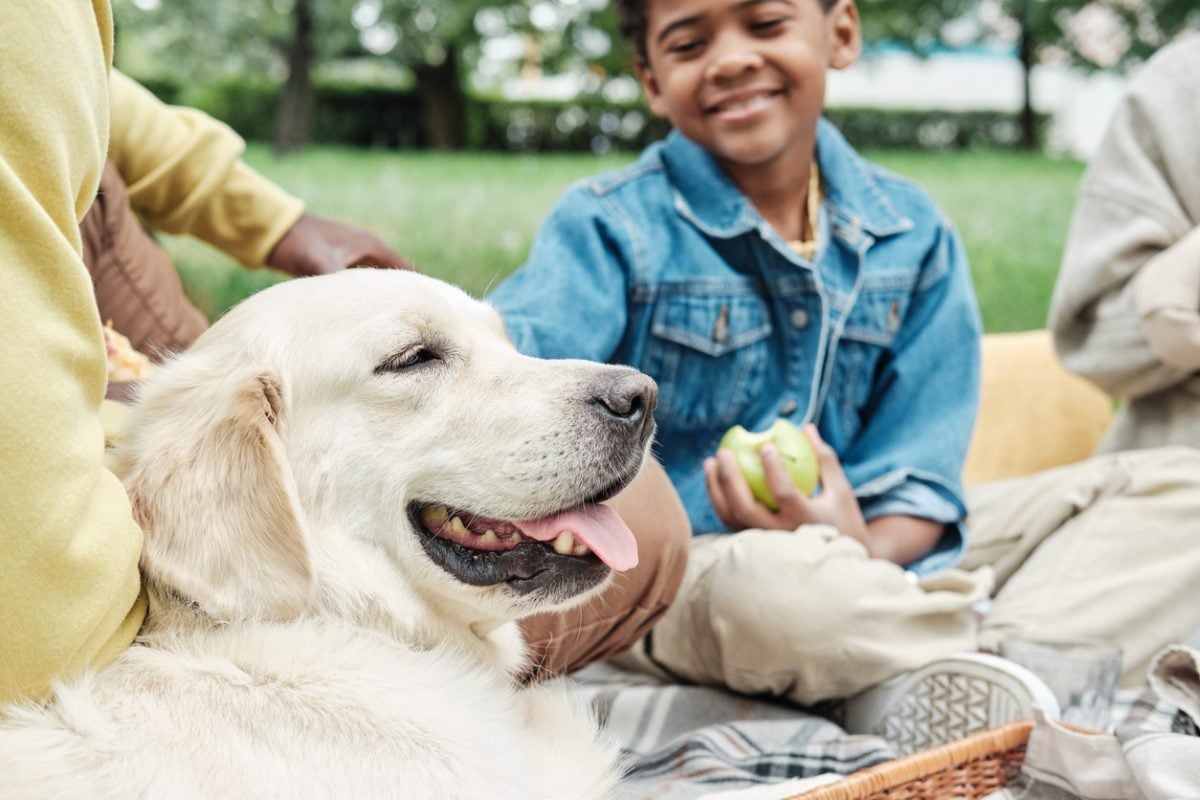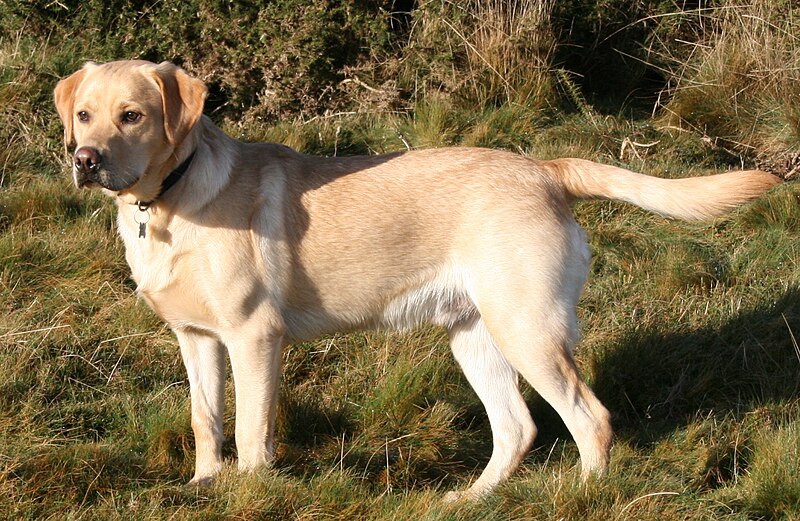
Dogs are known as a man’s best friend, but they can also be great companions for children. From their loyalty to their playful nature, dogs can bring numerous benefits to a child’s life. However, not all dog breeds are suitable for children. Some breeds may be too aggressive, too large or too energetic for young ones. That’s why finding the perfect breed of dog to fit your family and lifestyle is important. In this blog post, we’ll explore the best dogs for children. These breeds are known for their friendly, obedient and gentle nature, making them ideal companions for children of all ages. So, if you’re thinking of getting a dog for your child, keep reading to find the perfect match for your family!
The importance of choosing the right dog for children
Choosing the right dog for children is of utmost importance for their safety and happiness. Dogs can teach kids essential skills such as responsibility and patience, but not every breed is suitable for this task. When selecting a dog for your family, it is crucial to consider the temperament and personality of the individual dog. A family dog should love people, especially children. It is also important to think about the energy levels of the dog, as moderate energy levels tend to work best with families. Some breeds, like Border Collies and Boxers, may have very high energy levels and require a lot of exercise. On the other hand, smaller breeds may be more prone to injury if they are dropped or stepped on by playing children. Additionally, parents should consider the age and size of their children when selecting a breed. Medium to large breeds, such as Labrador Retrievers or Golden Retrievers, tend to be better equipped to handle the activity and rough play that comes with living with children. Ultimately, the right dog for your family should fit seamlessly into your lifestyle and be a beloved companion for years to come. [1][2]

Overview of the criteria for selecting the best dog for children
When choosing the best dog for your children, there are several important factors to consider. First and foremost, you want to assess the dog’s personality. Look for a dog with an agreeable temperament, one that is calm and has the ability to form strong bonds. Size is also an important consideration, but it should be looked at in relation to the dog’s temperament and energy level. Some larger dogs can be gentle and calm, while some smaller dogs can be excitable. It’s also crucial to consider your family’s lifestyle. Be realistic about the amount of exercise you can provide to a dog, as their energy level should match your family’s needs. When adopting a dog, it’s recommended to do a meet and greet to observe their behavior with your family members. Additionally, it’s important to ask the shelter or rescue workers questions about the dog’s socialization and compatibility with other pets. By considering these criteria, you can make an informed decision about the best dog for your children. [3][4]

Advantages and disadvantages of choosing a small dog
When it comes to choosing a dog for children, there are pros and cons to consider for each size category. Small dogs have their own set of advantages and disadvantages that should be taken into account. On the positive side, small dogs are more portable and require less space compared to their larger counterparts. They also tend to have lower exercise needs and are often considered lap dogs, making them great companions for children. Moreover, caring for a small dog breed is usually less expensive, as they require less food and their veterinary care is often more affordable. Additionally, small dogs tend to have a longer lifespan than larger breeds.
However, there are also some disadvantages to owning a small dog. Due to their size, they are more fragile and may be prone to injuries and health issues. Small dogs can also be more susceptible to dental problems. They may have a tendency to be yappy or excessively vocal, and some small breeds can develop Small Dog Syndrome, where they become demanding and attention-seeking. Furthermore, small dogs may not be the best choice for homes with young children or other pets.
Considering these advantages and disadvantages, it’s important to carefully weigh your options before choosing a small dog breed for your children. [5][6]
Examples of small dogs that are great for kids such as Chihuahuas, pugs, and Boston Terriers
When it comes to small dogs that are great for kids, there are a few breeds that stand out. Chihuahuas, pugs, and Boston Terriers are all excellent choices for families with children. Chihuahuas are small and compact, making them perfect for apartment living. They are also known for their loyalty and affectionate nature. Pugs, on the other hand, are playful and sociable dogs that love to be around people, especially children. Their wrinkled face and curly tail make them instantly recognizable and absolutely adorable. Boston Terriers are friendly and good-natured dogs that get along well with kids and other pets. They are known for being intelligent and easy to train, which makes them a great choice for families looking for a small, but smart companion. Overall, these small dog breeds have the perfect combination of size and temperament to make them wonderful additions to any family with children. [7][8]

Advantages and disadvantages of choosing a medium-sized dog
Choosing a medium-sized dog comes with its own set of advantages and disadvantages. One of the biggest advantages is the wide variety of breeds available to choose from. Medium-sized dogs tend to be more adaptable and can make good apartment dogs. They also usually require only moderate amounts of exercise, making them adaptable to different living environments. Additionally, many medium-sized dogs are suitable for families and make excellent companions for children. They are sturdy and not easily injured during play.
However, there are some drawbacks to consider when choosing a medium-sized dog. They may require more exercise than small dogs, so be prepared for regular walks and active playtime. Medium-sized dogs also eat more and may have slightly higher vet care costs compared to smaller breeds. Traveling with a medium-sized dog can also be more challenging, as they are not allowed to fly in the cabin of planes. Some hotels and motels may also have weight restrictions for dogs over 30 pounds.
Overall, choosing a medium-sized dog can be a great option for families looking for a friendly and adaptable companion for their children. Just make sure to consider the specific needs and characteristics of the breed before making a decision. [9][10]

Examples of medium-sized dogs that are great for kids such as Golden Retrievers, Labrador Retrievers, and Beagles
Medium-sized dogs are a popular choice for families with children as they are not too big and not too small, making them a great fit for kids. Some examples of medium-sized dogs that are known to be great with children include Golden Retrievers, Labrador Retrievers, and Beagles.
Golden Retrievers are known for their friendly and patient nature, making them excellent companions for kids. They are highly intelligent and easily trainable, which can be a plus when it comes to teaching children how to care for and interact with a dog.
Labrador Retrievers are another medium-sized breed that is great with kids. They are known for their playful and energetic personalities, which means they can keep up with active children. Labradors are also very tolerant and gentle, making them a perfect fit for families.
Beagles are known for their friendly and outgoing personalities. They are often described as being good-natured and playful, making them a popular choice for families with children. Beagles are also known for being very loyal and affectionate, making them great companions for kids.
Overall, medium-sized dogs like Golden Retrievers, Labrador Retrievers, and Beagles are ideal for families with children, as they are friendly, gentle, and have the energy to keep up with active kids. [11][12]

Advantages and disadvantages of choosing a large dog
When it comes to choosing a dog for your children, size is an important factor to consider. Large dogs have their own set of advantages and disadvantages. On the positive side, large breeds like Golden Retrievers, Bernese Mountain Dogs, and Boxers are known for their gentle and patient nature. They can tolerate rough play and are more emotionally stable than smaller breeds. These gentle giants make great cuddle buddies for your kids and can be trusted to protect your home. However, there are some downsides to owning a large dog. They require more exercise than smaller breeds, so you’ll need to be prepared for long walks and plenty of playtime. The cost of owning a large dog can also be higher, as they consume more food and go through supplies faster. Additionally, large dogs tend to shed more, which means more cleaning up around the house. Traveling with a large dog can be a bit more difficult, as they take up more space and may require special accommodations. Overall, owning a large dog can be a rewarding experience, but it’s important to weigh the pros and cons before making [13][14]
:strip_icc()/GettyImages-1258873341-b6adf5e1234d408ab2faa558bedd048c.jpg)
Examples of large dogs that are great for kids such as Great Danes, Bernese Mountain Dogs, and Boxers
When it comes to finding the best large dogs for kids, there are a few breeds that stand out. Great Danes, Bernese Mountain Dogs, and Boxers are all excellent choices for families with children. Great Danes are known for their gentle and patient nature, making them ideal companions for kids. They are also incredibly affectionate and love to be part of the family. Bernese Mountain Dogs, with their fluffy coats and friendly demeanor, are another great option. They are known for their loyalty and protective nature, making them excellent playmates for children. Finally, Boxers are energetic and playful, making them perfect for active families. They are also very friendly and love to be around people. All of these large breeds are known for their good temperaments and make great additions to any family with children. [15][16]

Explanation of why some breeds may not be the best choice for kids
While it’s important to choose the right dog breed for children, some breeds may not be the best fit. One of the main reasons is temperament. Certain breeds may have a tendency to be more aggressive or possessive, which can pose a risk to children. Breeds such as Pit Bulls and Rottweilers have been unfairly labeled as aggressive, but it’s essential to consider their temperament and the potential risks they may present. Additionally, some breeds may not have the patience or tolerance required to interact with children, especially if they are prone to being excitable or have high energy levels. It’s crucial to carefully evaluate a breed’s characteristics and behavior traits before bringing them into a home with children. Ultimately, it’s about finding a breed that is agreeable, patient, and gentle, making it a perfect companion for kids. [17][18]

Examples of breeds that may not be suitable for children such as Pit Bulls and Rottweilers
Some breeds of dogs may not be suitable for children, and it’s important to consider their characteristics before deciding on a pet. Pit Bulls and Rottweilers are examples of breeds that may not be the best choice for kids. Pit bulls can be less tolerant and more aggressive compared to other breeds, and any dog can become dangerous if not properly cared for. Rottweilers, on the other hand, can be aggressive and dominating, which may not be suitable for children. It is crucial to remember that every dog is different, and their behavior depends on their upbringing and training. However, it is always better to err on the side of caution when it comes to choosing a dog breed that will be around children. It’s essential to consider the safety and well-being of both the children and the dog. [19][20]


